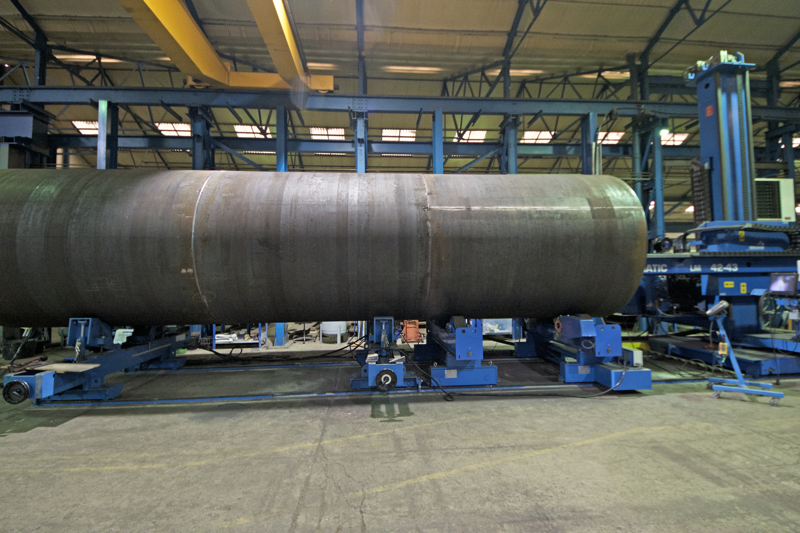Discover the efficiency and versatility of rolled and welded steel pipes. From construction to infrastructure, these pipes play a pivotal role in various industries. This article delves into the manufacturing process, advantages, and diverse applications of rolled and welded steel pipes, showcasing how they drive innovation and reliability in modern projects.
Introduction:
Rolled and welded steel pipes are essential components in the world of construction and infrastructure. Their manufacturing process and inherent advantages make them indispensable across industries.
The Manufacturing Process:
Rolled and welded steel pipes are crafted through a multi-step process. Steel plates are rolled into cylindrical shapes, and then longitudinal welding joins the edges. This welding technique ensures structural integrity and consistency.
Advantages of Rolled and Welded Pipes:
- Strength and Durability: The welding process enhances the strength of the pipes, making them suitable for carrying heavy loads and enduring harsh conditions.
- Custom Sizes: Rolled and welded pipes can be manufactured in various diameters and lengths to suit specific project requirements.
- Cost-Effectiveness: Their manufacturing process allows for efficient production, contributing to cost savings.
Diverse Applications:
- Infrastructure Projects: Rolled and welded steel pipes are used in infrastructure projects such as bridges, highways, and tunnels, offering reliability and longevity.
- Piling and Foundations: They provide stability in construction by serving as foundation elements and pilings in various structures.
- Oil and Gas Industry: Rolled and welded pipes are employed for transporting oil, gas, and other fluids, delivering efficiency and safety.

Innovation and Modernization:
As technology advances, so does the use of rolled and welded steel pipes. Innovations in welding techniques, corrosion resistance, and coatings contribute to their adaptability in diverse environments.
Ensuring Quality and Compliance:
Manufacturers adhere to stringent quality control measures and industry standards to ensure that rolled and welded steel pipes meet project specifications and safety requirements.
Environmental Considerations:
Rolled and welded steel pipes, when properly coated, offer corrosion resistance and a longer lifespan, reducing the need for frequent replacements and minimizing environmental impact.
Conclusion:
Rolled and welded steel pipes stand as a testament to engineering excellence and innovation. Their manufacturing process, advantages, and diverse applications make them indispensable in construction, infrastructure, and industrial projects. As industries continue to evolve, rolled and welded steel pipes remain a cornerstone of reliability, strength, and efficiency.